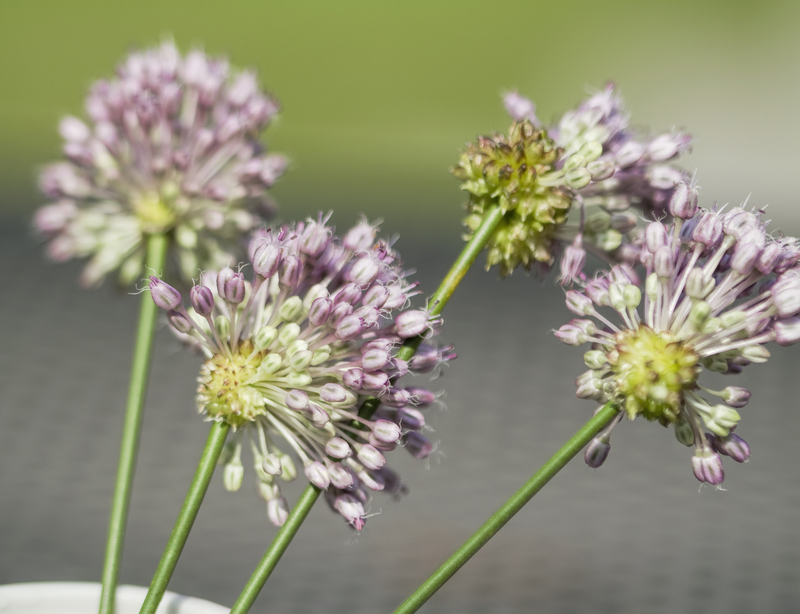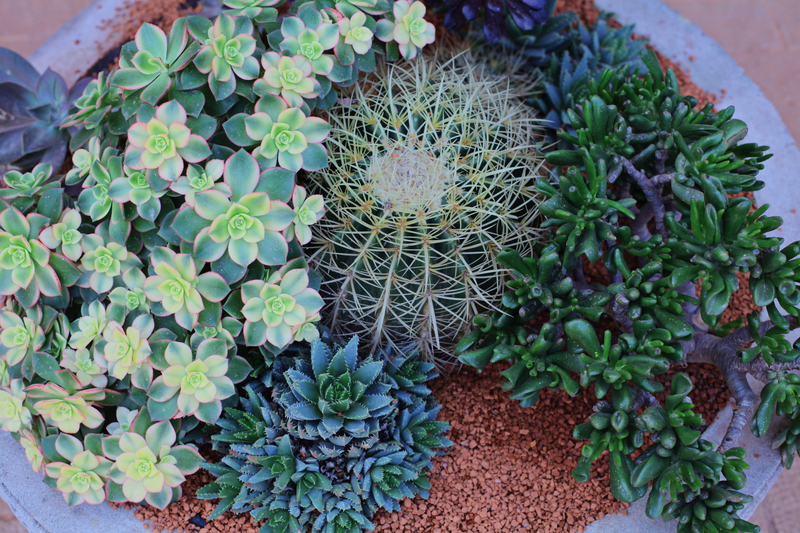Step-by-Step to Herb Gardening Success
Posted on 09/06/2025
Step-by-Step to Herb Gardening Success: A Comprehensive Guide
Are you dreaming of harvesting your own fresh basil, mint, and rosemary right from your backyard or kitchen windowsill? Herb gardening is one of the most rewarding ways to start growing your own food, whether you have sprawling garden beds or a compact apartment balcony. With the right steps, anyone can achieve herb gardening success. This in-depth guide will walk you through every aspect of creating a flourishing herb garden, ensuring you enjoy homegrown flavor all year long.

Why Start an Herb Garden?
Herb gardens offer numerous benefits beyond just delicious flavors. Let's review a few reasons why starting your own herb patch is a fantastic idea:
- Freshness: Nothing beats the aroma and taste of just-picked herbs.
- Convenience: Have culinary staples like parsley or thyme right at your fingertips.
- Health: Herbs are packed with nutrients and can enhance the nutrition of your meals.
- Cost Savings: Growing your own herbs cuts down on grocery bills.
- Beauty: Herb gardens can be decorative and even deter garden pests.
Planning Your Herb Garden: The Essential First Step
Strategic planning sets the stage for successful herb gardening. Whether you're gardening indoors or outdoors, consider the following to avoid common pitfalls:
1. Decide on Your Gardening Space
- Outdoor beds or borders: Excellent for larger quantities and perennial herbs.
- Raised planters: Great for improved drainage and accessibility.
- Containers or pots: Perfect for patios, windowsills, or balconies; ideal for beginners.
- Indoor windowsills: Low maintenance and perfect for year-round use.
*Tip: Make sure your chosen location receives at least 6 hours of sunlight daily, which is vital for most herbs to thrive.*
2. Select the Right Herbs to Grow
It's important to choose herbs that match your climate, growing conditions, and kitchen preferences. Here are some popular options for any aspiring herb gardener:
- Basil: Popular in summer, loves heat and full sun.
- Mint: Hardy perennial; keep contained as it can be invasive.
- Thyme: Drought-tolerant, works indoors and outdoors.
- Parsley: Versatile and easy to grow, biennial but often grown as an annual.
- Rosemary: Needs good drainage, perfect for Mediterranean climates.
- Cilantro: Prefers cooler temps, tends to bolt in heat.
- Chives: Hardy and productive year after year.
*Tip: Try a mix of annuals (e.g., basil, cilantro) and perennials (e.g., mint, thyme, rosemary) for continuous harvests.*
Soil Preparation for Thriving Herb Plants
Healthy soil is the foundation of herb gardening success. Follow these tips for preparing the best growing medium:
- Well-draining soil is a must; herbs hate soggy roots.
- Mix in organic matter: Compost or aged manure improves fertility and texture.
- Check pH levels: Most herbs thrive in slightly acidic to neutral soil (pH 6.0-7.0).
- For containers: Use a high-quality potting mix; avoid heavy garden soil that compacts in pots.
Want a tip? Mix in some sand or perlite for even better drainage if your soil tends to retain moisture.
Starting Your Herbs: Seeds vs. Seedlings
The next step towards herb gardening success is deciding whether to start your herbs from seed or buy young seedlings.
- Seeds:
- *Pro*: More affordable; wider variety; rewarding experience.
- *Con*: Takes longer; requires more attention during germination.
- Seedlings (transplants):
- *Pro*: Faster results; easier for beginners.
- *Con*: Fewer varieties available; more expensive per plant.
*Most herbs, such as basil, chives, and parsley, are easy to start from seed. Woody herbs like rosemary and thyme are simpler to buy as young plants.*
Step-by-Step Instructions: Sowing and Planting Herbs
1. Sowing Seeds Indoors
- Fill small pots or trays with seed starting mix and moisten lightly.
- Sow seeds at the depth specified on the packet (most need only to be lightly covered).
- Cover with a humidity dome or plastic wrap and keep in a warm, bright location.
- Water gently to keep soil moist but never soggy.
- Remove cover when seedlings emerge, and provide bright light.
- Harden off sprouts by gradually exposing them to outdoor conditions before transplanting.
2. Direct Sowing Outdoors
- Wait until after frost for most herbs (check your local last frost date).
- Prepare beds or containers by loosening soil and raking smooth.
- Sow seeds sparingly to avoid overcrowding.
- Keep the soil moist throughout germination.
- Thin seedlings once they have two sets of true leaves; follow spacing instructions.
3. Planting Seedlings or Transplants
- Plant on a cloudy day or in the evening to reduce transplant shock.
- Dig a hole slightly larger than the root ball in your garden bed or container.
- Gently remove plant from its container, loosen roots, and set it at the same soil level.
- Backfill and water deeply.
- Mulch around the base to conserve moisture and prevent weeds.
Herb Garden Maintenance: Tips for Robust Growth
Keeping your herbs healthy requires more than just planting. Here's how to ensure ongoing success in your herb garden:
- Watering: Most herbs prefer evenly moist soil; water at the base, not the foliage.
- Fertilizing: Herbs don't need much feeding; apply a balanced organic fertilizer once or twice during the growing season.
- Pest Control: Use natural solutions like neem oil or attract beneficial insects with companion planting (e.g., marigolds repel aphids).
- Weeding: Remove weeds regularly to avoid competition for nutrients and water.
- Mulching: Mulch retains moisture, suppresses weeds, and keeps roots cool.
Pinching and Pruning for Maximum Yield
To maximize your herb harvest, don't forget to pinch and prune:
- Pinch off growing tips of basil and similar herbs to encourage bushy growth.
- Remove woody stems from perennial herbs to stimulate new shoots.
- Regularly snip herbs to keep plants vigorous and delay flowering (bolting).
Indoor Herb Gardening: Year-Round Freshness
If you lack outdoor space, herb gardening indoors is practical and attractive. Here's how to keep fresh herbs flourishing on your windowsill:
- Light: Choose a sunny windowsill (south-facing is ideal). If natural light is insufficient, supplement with LED grow lights.
- Containers: Use pots with drainage holes; group herbs with similar water needs together.
- Water: Indoor air dries soil faster--check moisture often.
- Air Circulation: Good airflow helps prevent mold and mildew indoors.
Basil, chives, parsley, and mint are all great choices for indoor herb gardening efforts.
Harvesting Your Herbs for Best Flavor
One of the greatest pleasures of herb gardening is harvesting fresh leaves to elevate your recipes. Here's how to harvest herbs for the most robust flavor:
- Time it right: Harvest in the morning after dew has dried but before midday heat.
- Use sharp scissors or garden snips to avoid damaging the plant.
- Take only up to a third of any plant at one time, allowing it to recover.
- Avoid flowering stems: Herbs lose flavor when they bolt (produce flowers).
*Tip: For continued abundance, frequent harvesting triggers new growth and delays maturity.*
How to Preserve and Store Herbs
If your herb garden produces more than you can use, don't let it go to waste. Try these preservation techniques:
- Drying: Hang bunches in a warm, airy place out of direct sunlight.
- Freezing: Chop and freeze herbs in ice cube trays with water or oil for use in dishes later.
- Infusing: Make herbed oils and vinegars to extend the flavors of your harvest.
Troubleshooting Common Herb Garden Problems
Poor Germination
- Check for fresh seeds--herb seeds don't stay viable forever!
- Ensure soil temperature is warm enough for germination, especially basil and rosemary.
Yellowing Leaves
- Overwatering or inadequate drainage often causes yellowing.
- Check roots for rot and reduce watering.
Pest Problems
- Aphids, spider mites, and whiteflies are common. Use insecticidal soap or attract ladybugs.
- Good airflow reduces fungal diseases like powdery mildew.
Seasonal Care for Year-Round Herb Gardening
Consistent care throughout the year will ensure your herb garden is always productive:
- Spring: Start seeds, prepare soil, and plant cool-weather herbs.
- Summer: Water consistently; harvest regularly to avoid bolting.
- Autumn: Bring tender herbs indoors or take cuttings to overwinter on windowsills.
- Winter: Indoor herbs continue growing with care; prune and harvest sparingly in cool, short days.

Step-by-Step Herb Gardening Success: Pro Tips
- Label your plants to avoid confusion between look-alike types.
- Group herbs with similar needs in the same pot or bed (e.g., Mediterranean herbs together).
- Don't over-fertilize; too much nutrient leads to lush but weak-scented growth.
- Give roots room to grow--repot containers as needed.
- Rotate locations or containers seasonally to ensure even light exposure.
Conclusion: Enjoying Your Herb Gardening Journey
No matter your experience or available space, following these herb gardening tips and step-by-step instructions ensures a lush, productive herb garden. Start small, learn as you grow, and you'll be harvesting fresh, aromatic herbs before you know it. Not only will your cooking reach new heights, but you'll also enjoy the satisfaction of cultivating your own food--step by step, season by season.
Ready for herb gardening success? Gather your seeds, soil, and sunshine, and let your green-thumb adventure begin!
Latest Posts
Breathe New Life into Your Garden: Take the First Steps
Hedge Trimming Techniques for Stunning Landscapes
Keep Your Garden Lush: Protect Plants from Winter Damage

